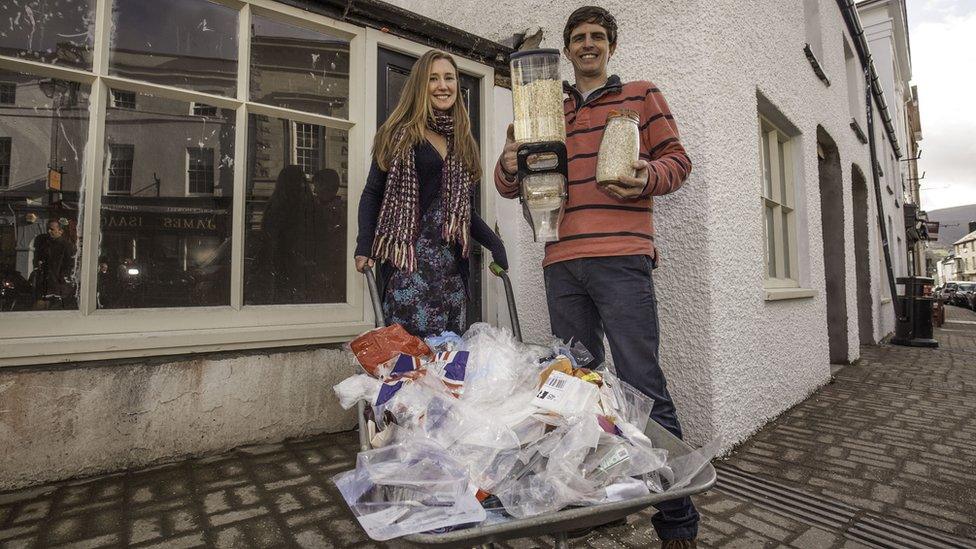Going plastic-free: The rise of zero-waste shops
- Published
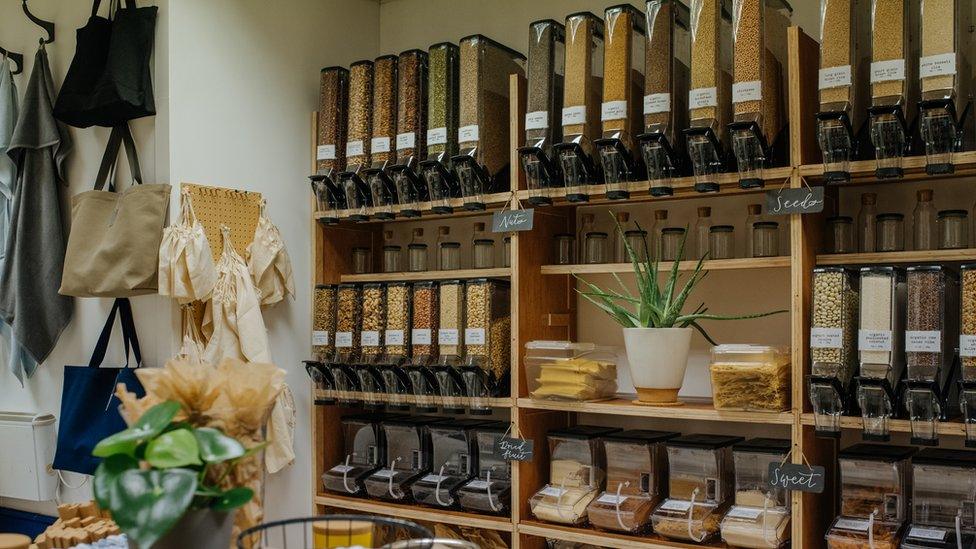
Shoppers can fill their own containers with goods
Packaging-free refill shops are on the rise in Wales as the backlash against plastic gathers pace.
Last year saw "zero waste" shops open in Crickhowell in Powys, Tenby in Pembrokeshire and in Cardiff.
"It's a more modern way of doing an older thing," Sophie Rae, founder of Cardiff-based Ripple said.
Customers bring their own containers from home to the stores and weigh the goods they want to buy - minus the weight of the packaging.
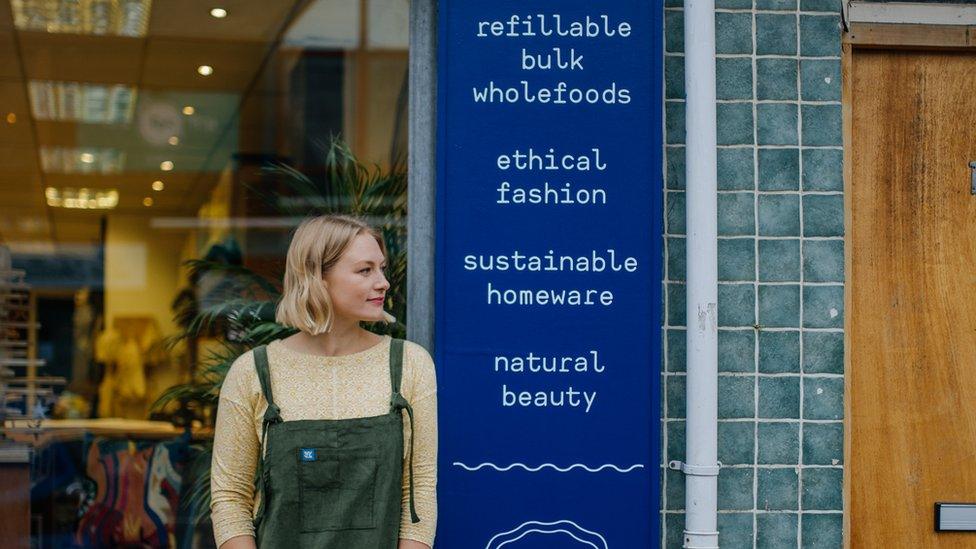
Sophie Rae wants to make sure sustainability is not just for those with high incomes
"It makes zero-waste shopping cost effective," said Ms Rae.
In addition, they can buy much smaller quantities - for example when cooking to a recipe - which helps reduce food waste.
"People come in and buy 10 grams of something because you can in our shop," said Cathy Butler who runs The Little Pantry with her husband David and their two sons in Tenby. "A teaspoon of something costs hardly anything and you are not throwing anything away."
The shops sell a variety of dried bulk foods as well as natural beauty products and cleaning supplies which can be bought using a refill station.
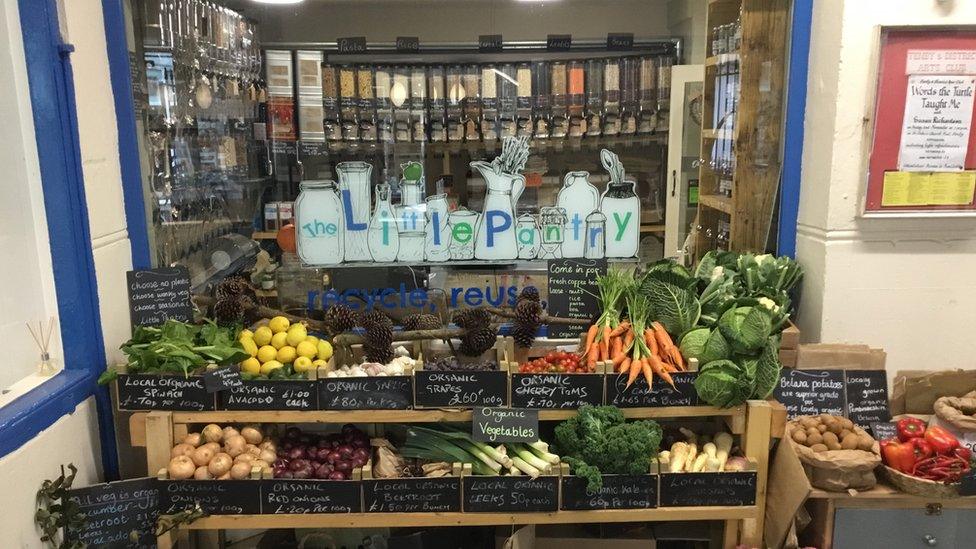
Zero waste shops, such as The Little Pantry in Tenby, are trying to get people to shop differently
Some also offer fresh fruit and vegetables - often organic - while others encourage customers to shop plastic-free at local greengrocers.
Robin Masefield who runs Natural Weigh in Crickhowell admits organic produce is more expensive but claims his shop is on average cheaper than the major supermarkets.
"The cost of packaging plays a part," he says, "and supermarkets also charge a premium for organic".
Recycle less?
Recent analysis of recycling rates around the world suggests Wales is currently best in the UK, second in Europe and third in the world.
The Welsh Government is aiming for Wales to be recycling, reusing or composting 70% of its waste by 2025 and be a zero waste nation by 2050, with all waste to be reused or recycled and no landfill or traditional incineration.
But the UK's recycling industry is struggling with a Chinese ban on imports of plastic waste and the National Audit Office said there was nothing to prove that packaging sent for recycling is processed.
"We cannot keep up with recycling rates. What if we just didn't have to recycle much at all?" said Ms Rae. She added there was no judgement if customers bring in a plastic container - "the issue is single use".
The Welsh Government outlined plans in 2018 to promote free drinking water at refill points to cut down on single use plastics. A spokesman said it was investing in rolling out the scheme to communities across Wales, where there are already more than 700 refill stations.
It is also working with the other UK nations to consider a UK-wide deposit return scheme for drinks containers under which consumers would get deposits back for returns.
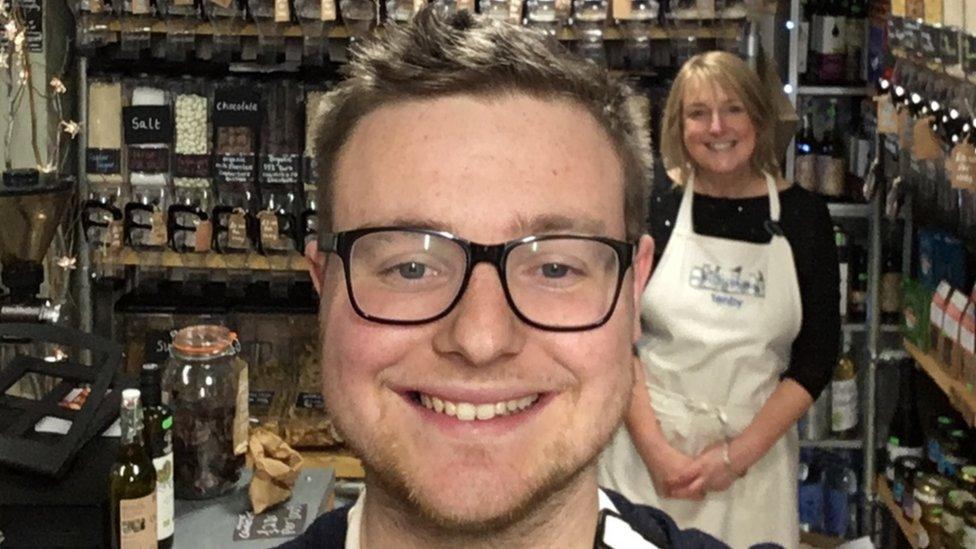
Cathy Butler, pictured with son Lewis, opened The Little Pantry in 2018 to help people make the shift to buying food free of packaging
While the shops are branded "zero waste", all owners acknowledge it is virtually impossible to live completely waste-free.
"Zero waste is a long-term goal which is not necessarily achievable," Mr Masefield said, "but you've got to reach for the stars".
Ms Butler said: "There's a long way to go. It may be an impossibility, but we can all cut down.
"I just want to make people think when they're doing their shopping."
- Published13 November 2018
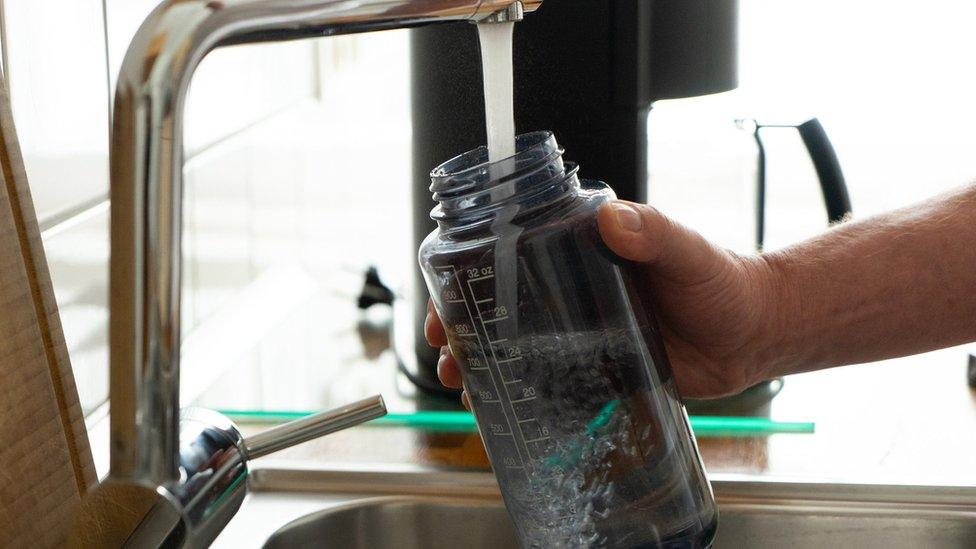
- Published22 April 2018
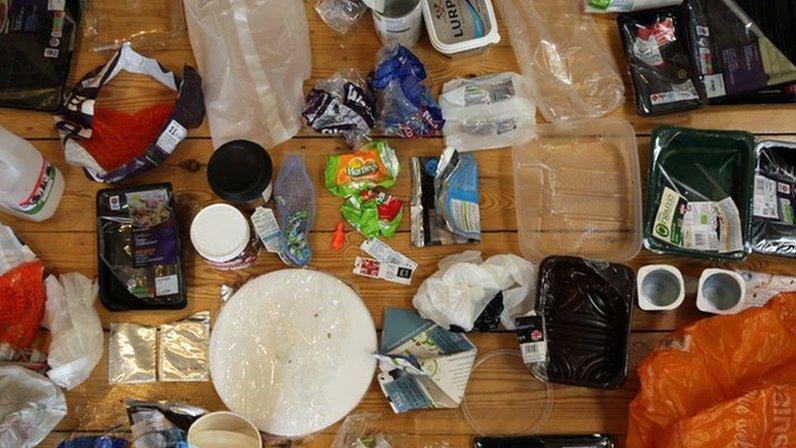
- Published6 November 2017
